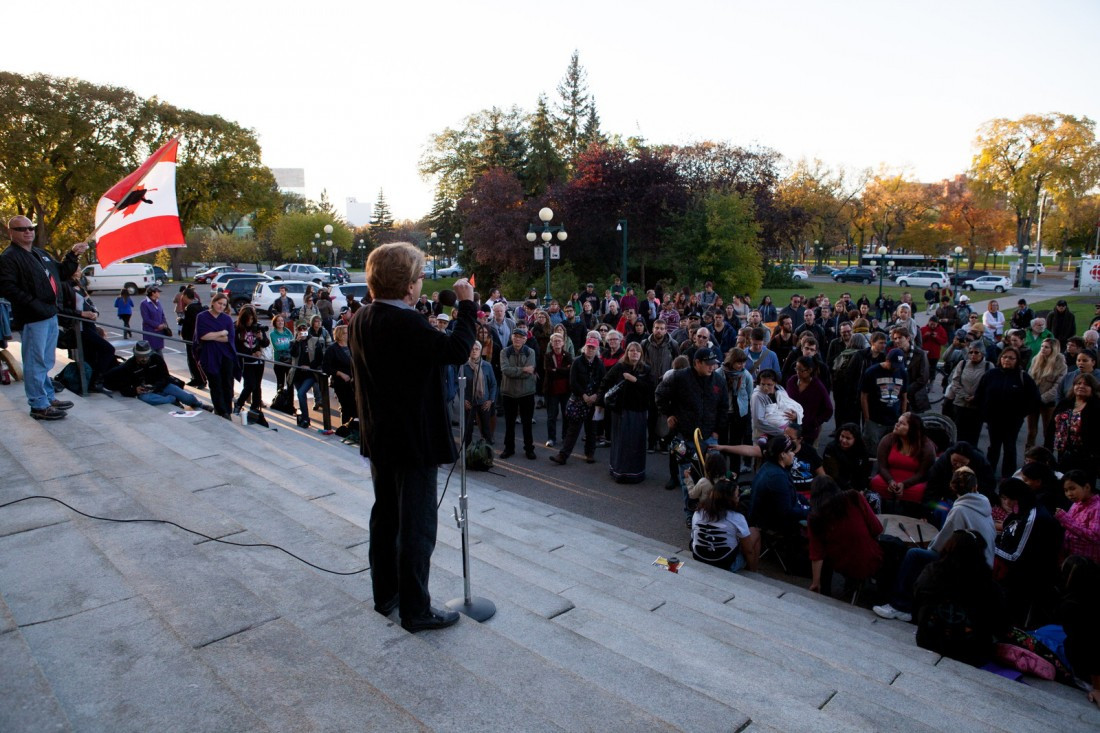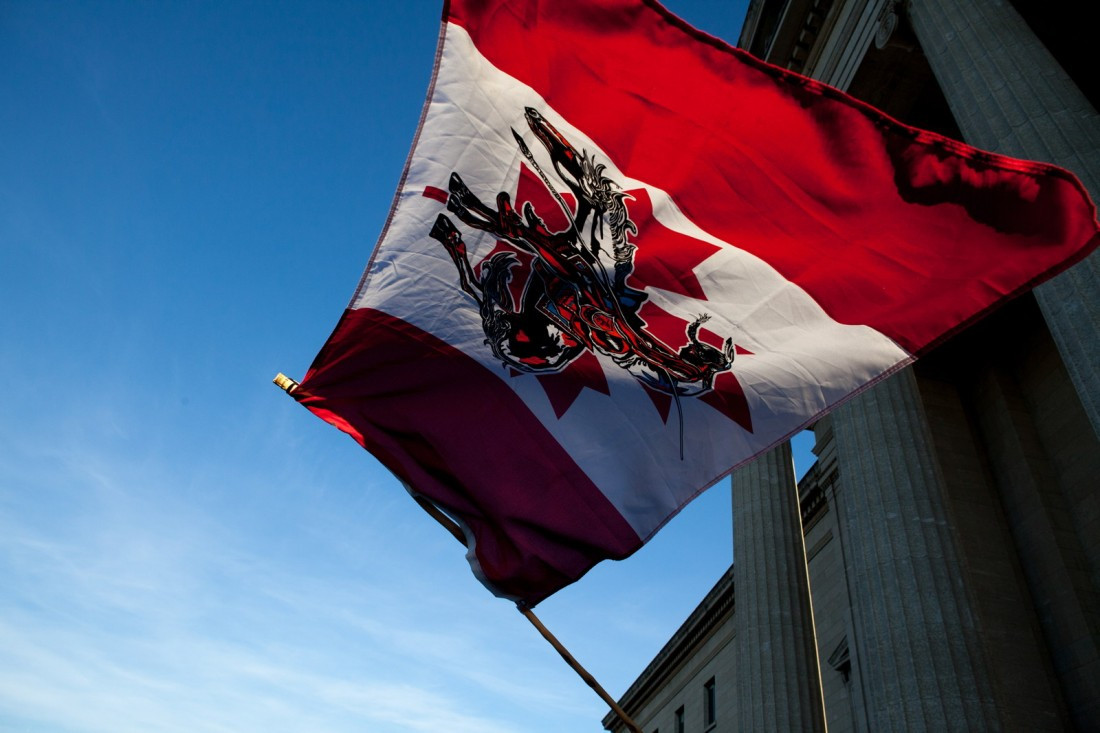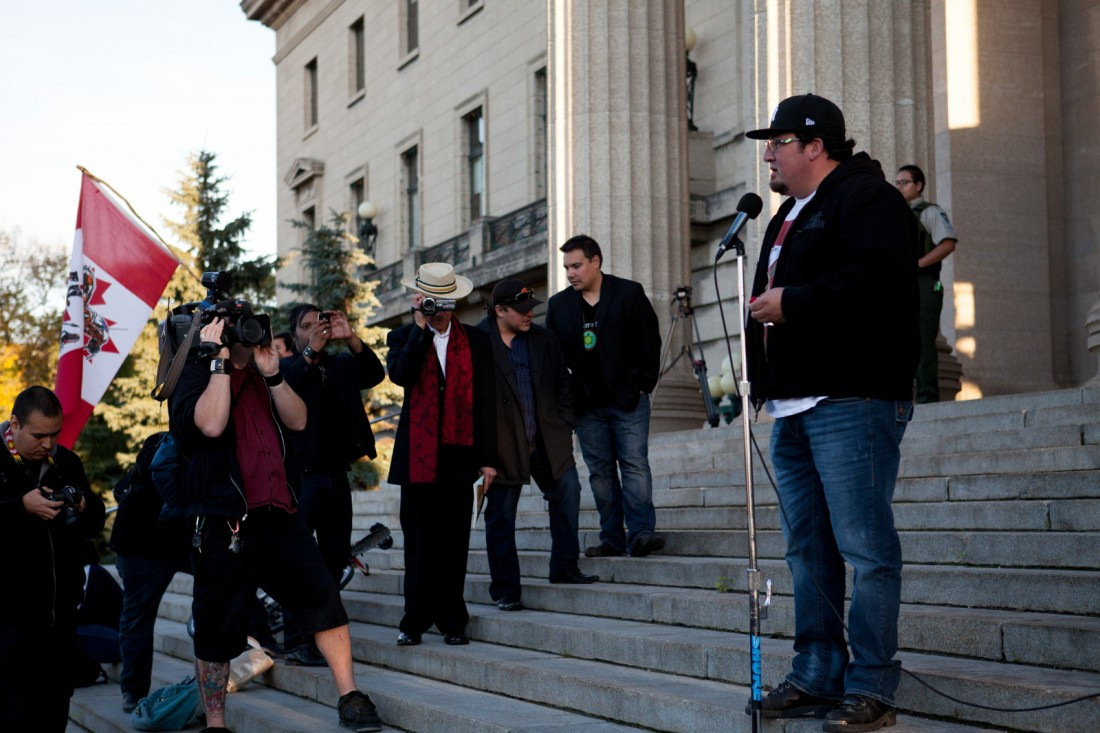Moving forward by looking back
Idle No More and AMC raising awareness with local events
Monday, October 7 marked the 250 year anniversary of the Royal Proclamation of 1763, and the Idle No More movement stepped back into the public consciousness with a day of action to commemorate the historical event with gatherings all across Canada and around the world. “ ”...I believe we have to go through a decolonization process – each and every single one of us.” Grand Chief Derek Nepinak, Assembly of Manitoba Chiefs
Here in Winnipeg there was rally at the Manitoba Legislature with perhaps a few hundred people – predominantly aboriginal but including many from other groups – along with a significant media and police presence.
It was a peaceful gathering that began with some drumming and prayer offerings followed by several speakers addressing the crowd. NDP MP Judy Wasylycia-Leis was one of them.
“...[H]ere we are today on the 250th anniversary of the Royal Proclamation, a treaty, an honourable understanding signed between the crown and the original peoples of this land, and [there’s] not even any national recognition,” she proclaimed, alluding to a general lack of publicity and knowledge about the subject.
Grand Chief Derek Nepinak of the Assembly of Manitoba Chiefs (AMC) was also in attendance. When he spoke, his words turned out to be some of the most compelling of the day.
“You know, in the last year since Idle No More has really picked up steam, it’s really caused a lot of people in leadership to take inventory of what we’re doing in holding ourselves out in political hierarchies. It’s caused many of us to take a step back and to reconsider how we’re operating, and the way we’re doing things,” he said.
He spoke of his decision to throw away his Status Indian card because it serves merely as a tool to quantify aboriginal people and “to turn [them] into a commodity of exchange for economies that have been built around our poverty and around our heartache… that’s what the certificate of Indian Status is all about.
“I did that because I believe we have to go through a decolonization process, each and every single one of us,” Nepinak explained.
The AMC has also been promoting an event on Saturday, October 12 at 10 am, where there will be a gathering at Portage and Main to welcome James Anaya, the UN Special Rapporteur on the Rights of Indigenous People, with a Healing Dance. Jingle Dress dancers in full regalia will be participating, and the event is open to everybody.
Both the upcoming Saturday event and last Monday’s gathering have been an effort to raise awareness, something that Wasylycia-Leis believes is important.
“Some people would actually say, and I agree, that the Royal Proclamation really needs to rank right up there in terms of our heritage as a country with medicare, with peacekeeping, with multiculturalism – it is a significant part of our heritage, defined 250 years ago.”
John Ralston Saul further explains the Royal Proclamation (and the Quebec Act that followed in 1774) in his book A Fair Country as the precipitation of a radical shift in human history, something not seen before:
“By this proclamation and this act, the reality of three minorities, each one incapable of even pretending to be able to dominate the other two, was given a proto-constitutional form and a mythological expression. Canada would be a place that, in order to exist, would have to do so upon a triangular foundation of Aboriginals, francophones, and anglophones. All the pushing and pulling within our society over the last two hundred and fifty years has been and still is somehow tied to that profoundly atypical beginning.”
The tragic part of our current situation is that many people here remain unaware of this history, and resist embracing the ideas that were a prelude to the beginnings of what we now know as Canada.
According to Wasylycia-Leis, a certain part of the responsibility for this forgotten past lies with our federal government’s refusal to acknowledge or celebrate these seminal moments in our history.
“Shame on our national government for ignoring these understandings and these important moments in the history of this country.”










